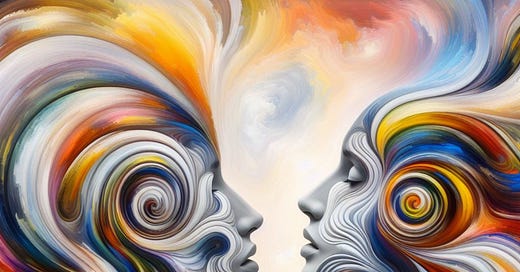THE LONGING FOR A BETTER LIFE
Human beings have always longed for better. Advances in technology, immigration, fitness programs, diets, and education have all grown out of our desire to better ourselves, our lives, and our world. But, while this sounds simple, it’s really far more complicated than we realise.
To begin with, there is a profound truth in Joseph Campbell’s famous words:
We must be willing to get rid of the life we planned, so as to have the life that is waiting for us. The old skin has to be shed before the new one can come.
And we struggle to let go of our plans even when the life that is waiting for us is more meaningful and rich than the one we have. But we do not live in a vacuum. We are all impacted by forces beyond ourselves. We all connect with other people and their desires for a better life. We all have to balance the needs of today with our dreams for tomorrow. All of which means that showing up fully, authentically, and courageously in our lives and relationships is not easy. There’s a cost involved and we don’t always know how to get to the life for which we long.
M. Scott Peck stated the obvious and uncomfortable truth when he began his book The Road Less Traveled with the words, “Life is difficult.” This means that simply facing the challenges of getting through each day can be significantly challenging for many, if not most, people. And the result is that many of us either put off striving for our desired life until we have the time, resources, and energy—which seldom happens—or we look for whatever quick fixes and popular answers we can find and dive into them uncritically.
SEEKING OUR BEST LIFE
But building a fulfilling life, an authentic self, and meaningful relationships takes a more intentional approach and a lifelong perspective. We do not become our best selves living our best life in our best world quickly or easily. It takes mindful, intentional, and consistent work. That’s why it is so tempting to try and shortcut the process and find the life we want by accumulating wealth, or controlling the people and environment around us, or making ourselves the centre of our own universe. But these strategies, while they may bring some benefits in the short term, seldom lead us to the goodness, meaning, and connection that can sustain us throughout our lifetimes.
That’s why we need a healthy and authentic spirituality, or what I would call a life-giving worship practice. In my article entitled What Is Worship Anyway? I outlined what I mean when I speak about worship and hinted at some of the elements that contribute to a positively life- and world-shaping spiritual practice. In this article, I want to continue that conversation and explore in a little more detail some principles for how spirituality can lead us into a better life and a more just and compassionate world.
Most mystics, whether in sacred texts, religious communities, or psychological and philosophical circles, speak of spiritual practices and experiences in terms of union, interconnectedness, permeable boundaries, and intimacy. In the Bible, sexual language is often recruited in an attempt to describe spiritual encounters with God. I have drawn on this wisdom in my writing and training for many years. And I have developed a model of spirituality or worship that uses the experience of intimacy as its foundation.
SPIRITUALITY AS INTIMACY
What we call intimacy is a complex reality that incorporates levels of engagement, things we do, states of being, and our whole orientation to life and our world. We experience different levels of intimacy in different situations and with different people (including ourselves). We engage in different acts that are recognised as both expressions and experiences of intimacy. We enter into certain particularly vulnerable and receptive states of being or consciousness that we call intimacy. And we go through life with a dynamic and ever-changing sense of connectedness, awareness, or intimacy with ourselves, our world, other people, and God or Life or Source or the Universe. But in all of these aspects, our intimacy is about how our lives are shaped, changed, and influenced by relationship with someone or something else.
One of the ways intimacy, especially between people, can be described is as mutual self-disclosure. In this model, intimacy requires participants to disclose or reveal themselves to one another as honestly, vulnerably, and consistently as possible. This can be thought of as having three elements or movements.
Keep reading with a 7-day free trial
Subscribe to Sacredise Your Life! to keep reading this post and get 7 days of free access to the full post archives.




